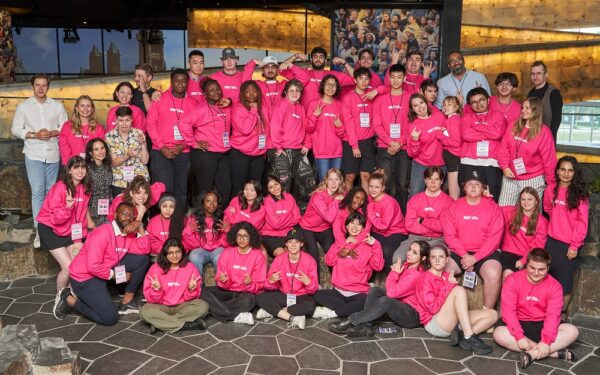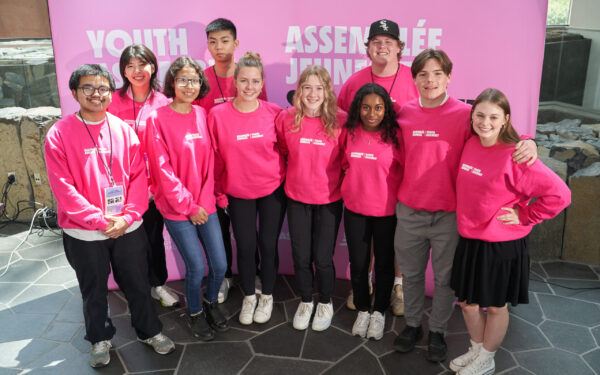How can you teach kids about being safe online? What resources are making online learning actually fun? Here are five digital literacy programs to check out this summer.
If you’re a parent with school-aged kids at home right now, there’s a good chance your little ones are way over their allotted screen team.
In Canada Internet Factbook this year, we found most Canadians are enforcing some type of screen time limitations for their kids.
While official online learning is done for the summer, it is just around the corner again for many families in September. Between now and then, many parents may be looking for something fun for your kids to do online during your summer staycation.
That’s why we’d like to tell you about some great digital learning and literacy initiatives CIRA has been supporting.
If you’ve googled any variation of “digital skills for kids” you’ll know there’s pages of programs at your fingertips. With so much information online, it can be overwhelming to know where to start.
We’ve got your back. Not only will these teach kids how to be safe online, the resources below will help make online learning actually fun.
Here are five digital literacy programs we think your kids should know about:
1. Actua: Learning STEM at home
Want to chat with a scientist over video from your living room? Yes there is a program that will set this up for free.
It’s one of the many programs you can find in the Actua At Home weekly series featuring science, technology, engineering and math (STEM) activities to entertain your kids for hours! There are workshops on artificial intelligence, coding, a NASA visualization explorer and so much more.
You can filter by age, type, price (many are free!) and topic here.
1
2. MediaSmarts: Break the Fake
Have you hovered over a news story link about COVID-19, hesitated to click on it, and wondered if it’s fake news? You’re not alone. More than half of Canadians admitted to having fallen for fake news, according to our latest research in our report Canadians deserve a better internet.
MediaSmarts, a long-time CIRA partner, has brought back the house hippo along with the discussion on detecting fact from fiction online. Give your kids a chance to learn their fact-checking tips for detecting fake news online here. And you can test them afterwards with any of your favourite examples of COVID-19 misinformation circulating online.
During COVID-19, it’s more important than ever to ensure you’re sharing accurate information online, which is what sparked MediaSmart’s new campaign: Check then share. Here’s how you can help stop the spread of misinformation.
3. TakingIT Global: Create to Learn @ Home
Want to learn about moccasin making? Indigenous hand drumming? How about video editing?
TakingITGlobal has created a series of videos with experts sharing skills and you can watch them all on Facebook. Connected North, a program led by TakingITGlobal, curates a library of real-time, high definition, interactive video sessions for youth in Indigenous, rural and northern communities. CIRA is funding Connected North this year to help expand its video library.
1
4. Kids Code Jeunesse : Virtual Code Club
Join a trip across the country, or a trip to space with a Kids Code Jeunesse workshop! Kids learn about coding through topics like Space Burps (yes, you read that right), Canadian animals or Camping2Code. Here’s all their online workshops and courses on their website.
They are also hosting a free summer virtual code club, which you can join here.
1
This year, CIRA ‘s Community Investment Program is funding the #kids2030 project with Kids Code Jeunesse which will bring artificial intelligence, ethics, and global issues to the forefront of kids’ education.
5. Option consommateurs: Short stories on online privacy
Now onto some tough topics. Where do you start with teaching kids about online privacy and cyber-bullying? With funding from CIRA’s Community Investment Program, Option Consommateurs produced two vibrantly illustrated online short stories teaching kids about protecting their privacy on the internet, through engaging, relatable stories. Each story comes with additional educational tools for parents.
You can read the two short stories here:
- I don’t exist anymore!, on cybersecurity;
- The Predator, about cyberbullying and protecting online reputation.
1
In this year’s Canada Internet Factbook, we found that about one in ten Canadians say they’re addicted to the internet. We hope it’s these kinds of creative, educational resources your young people can get addicted to!
Learn more about CIRA’s Community Investment Program grants here.
Have another resource to add to our list? Let us know on social media! Tweet us at @ciranews or drop us a suggestion on Instagram @choose.ca or Facebook @cira.ca.
Erica works in corporate communications at CIRA. Her background is in writing and community relations in the non-profit sector. She is a graduate of Carleton University’s journalism program.





